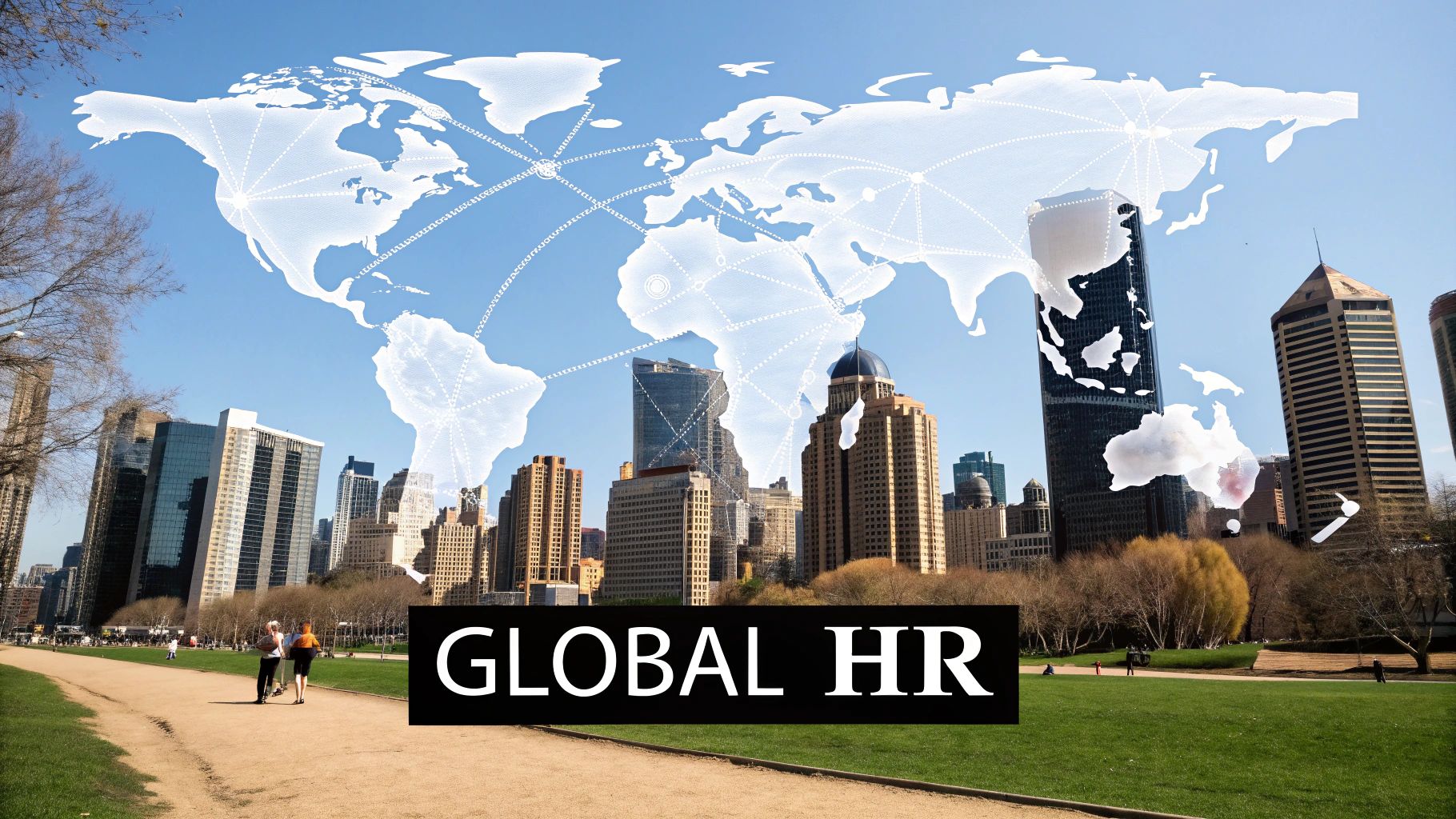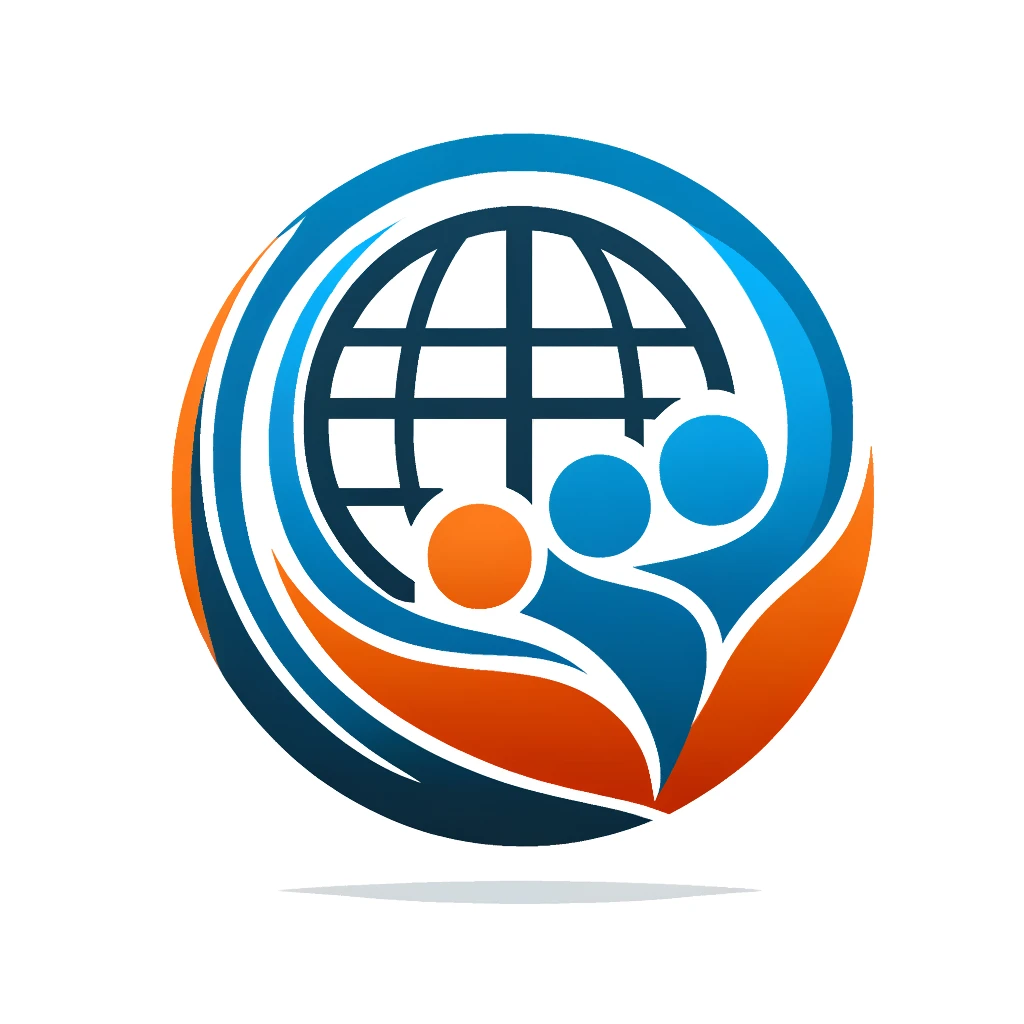Navigating the World of HR Credentials
The Human Resources profession has come a long way. From its localized beginnings, it has blossomed into a strategic global force, evolving to meet the demands of our interconnected world. This shift brings a new focus on specialized skills and globally recognized credentials. Understanding these certifications, their origins, and their value is key for any HR professional looking to excel in today's dynamic landscape.
What distinguishes a truly effective global HR professional? It often comes down to a commitment to continuous learning, backed by respected certifications that validate their expertise. These credentials signify more than just acquired knowledge. They represent a dedication to best practices and ethical standards, built upon decades of evolving HR theory and practice.
Exploring Key HR Certifications
In this guide, we'll explore the world of global HR certifications, highlighting eight key credentials that can propel your career forward. Whether you're:
- An aspiring HR professional just starting out
- A seasoned specialist looking to expand your global reach
- An educational institution aiming to enrich your curriculum
- A corporate HR team seeking to upskill your workforce
- Or simply an HR community member keen to stay ahead of the curve
this article will provide the insights you need to navigate the world of global HR certifications. Get ready to discover the qualifications that can unlock your potential and empower you to lead on the global stage.
1. SHRM-SCP (Society for Human Resource Management – Senior Certified Professional)

The SHRM-SCP certification stands as a prestigious achievement for senior HR professionals worldwide. It represents more than just knowledge; it signifies a deep understanding of applying HR principles to achieve real business results. If you’re an experienced HR leader ready to solidify your expertise and take your career to the next level, the SHRM-SCP might be the perfect fit.
This certification validates your ability to develop impactful HR strategies, confidently lead HR functions, effectively influence stakeholders, and analyze performance metrics for continuous improvement. It’s a powerful demonstration of your mastery of both critical HR technical knowledge and the essential behavioral competencies that truly set leaders apart.
The SHRM-SCP stands out because of its comprehensive nature. It delves into both the technical and behavioral sides of HR, emphasizing strategic implementation and aligning HR with overall business goals. Its global recognition is continuously expanding, making it a valuable asset for HR professionals seeking international opportunities.
Key Features and Benefits
- Comprehensive Coverage: The SHRM-SCP covers both technical HR knowledge and vital behavioral competencies.
- Strategic Focus: It emphasizes strategic implementation and alignment with business objectives.
- Global Recognition: Enjoy the benefits of an internationally recognized and accepted certification.
- Continuous Development: The certification is valid for 3 years with recertification through professional development credits, ensuring your skills remain sharp and up-to-date.
- Backed by SHRM: Benefit from the support of the Society for Human Resource Management (SHRM), the world’s largest HR professional society.
Pros
- Strong Recognition: The SHRM-SCP is highly regarded, especially in the US, and its global recognition is growing.
- Practical Application: The focus is on practical skills and real-world application, not just theory.
- Business-Oriented: It emphasizes business outcomes and strategic execution.
- Structured Recertification: A clear professional development pathway is provided for recertification.
Cons
- Cost: The SHRM-SCP has a higher cost compared to some other certifications ($300-$400 for SHRM members).
- Relatively New: It's a newer certification (established 2014) compared to some competitors.
- Geographic Recognition: Recognition is more widespread in North America than in some other regions.
- Rigorous Exam: The exam is challenging, with approximately a 57% pass rate.
Real-World Impact
The SHRM-SCP's impact is evident in leading organizations globally. Companies like Google, Microsoft, and IBM utilize the expertise of SHRM-SCP certified professionals to drive strategic HR initiatives, from workforce planning and talent acquisition to organizational development. This demonstrates the real-world value and influence of this certification.
Tips for Success
- Master the BoCK: Focus your studies on the SHRM Body of Competency & Knowledge (BoCK).
- Network and Learn: Consider joining local SHRM chapters to connect with other professionals and broaden your knowledge.
- Official Resources: Utilize official SHRM learning resources for the most accurate and up-to-date content.
- Practice Makes Perfect: Take practice exams to get comfortable with the format and identify areas for improvement.
- Real-World Application: Relate the theoretical concepts to practical, real-world situations.
The SHRM-SCP’s growing prominence is thanks to leaders like Johnny C. Taylor, Jr. (President and CEO of SHRM) and Alexander Alonso (SHRM Chief Knowledge Officer), and the rising demand from Fortune 500 companies for SHRM-certified professionals. It has earned its place as a powerful resource for senior HR professionals wanting to showcase their strategic abilities and dedication to driving business success. You might be interested in Our guide on… for further information about HR certifications.
2. GPHR (Global Professional in Human Resources)

Do you dream of a career in HR that spans continents? Do you see yourself expertly guiding international teams and crafting HR strategies that transcend borders? If this resonates with you, the GPHR (Global Professional in Human Resources) certification could be the key to unlocking your global HR potential. This prestigious credential affirms your mastery of international HR best practices, establishing you as a leader in our increasingly interconnected world.
Administered by the HR Certification Institute (HRCI), the GPHR zeroes in on the distinct challenges and opportunities presented by global HR management. It explores crucial areas like global talent acquisition and mobility, the intricacies of international employment law, and the art of cross-cultural management. With this certification, you'll gain the knowledge and skills to build and execute impactful HR policies that bridge international divides, effectively managing diverse global teams.
A Deep Dive Into Global HR
What distinguishes the GPHR is its specialized focus on transnational HR operations and strategy. It covers the entire spectrum of global talent management. This ranges from strategic workforce planning to expatriate management, preparing you for the multifaceted nature of a globalized workforce. The curriculum emphasizes practical application, empowering you to address real-world scenarios in global mobility and compliance with international employment laws.
The value of the GPHR is increasingly recognized by multinational organizations. Industry giants like Unilever, Siemens, and General Electric have benefited from the expertise of GPHR-certified professionals. These professionals are leading global HR transformations, managing international HR departments, and overseeing complex expatriate programs. This underscores the tangible impact of the GPHR on successful global HR strategies.
Weighing the Pros and Cons
Pros:
- Specialized Expertise: The most focused certification for global HR, demonstrating in-depth knowledge.
- Practical Skills: Strong emphasis on cross-border HR challenges and solutions.
- Global Credibility: Highly regarded by multinational organizations, boosting career prospects.
- Regulatory Compliance: Expertise in navigating complex international employment regulations.
- Industry Recognition: Recognized across diverse sectors, providing portability and value.
Cons:
- Cost: A significant financial investment is required. The application and exam fee is $495.
- Experience Requirements: A minimum of 3 years of global HR experience is necessary.
- Regional Recognition: May have less recognition in some regions than broader HR certifications.
- Community Size: Networking opportunities might be somewhat limited due to a smaller, more exclusive community.
- Study Requirements: Demanding coursework covering intricate international content requires dedicated preparation.
Charting Your Path to GPHR Success
- Regional Expertise: Focus on understanding regional variations in labor laws and practices.
- Networking: Join international HR associations for valuable connections and knowledge exchange.
- Collaboration: Create study groups with other HR professionals from diverse countries.
- Stay Current: Subscribe to global HR publications to keep up with international trends.
- Real-World Application: Use case studies from multinational companies to enhance your preparation.
For further HR resources, explore our comprehensive guide: Our Sitemap.
A Global HR Advantage
The GPHR stands out because it provides a focused and thorough exploration of global HR management. It equips professionals with the specific expertise and practical abilities required to excel in today's interconnected global marketplace. For those committed to a career in international HR, the GPHR is a worthwhile investment in your future. Its endorsement by the HRCI and adoption by multinational corporations, including leading international HR consultancies like Mercer and Willis Towers Watson, further strengthens its reputation and prestige.
3. HRCI aPHR/PHR/SPHR Certifications

The HRCI aPHR, PHR, and SPHR certifications offer a powerful suite of credentials to elevate your HR career. Founded in 1976, HRCI is a respected HR certification body, providing a clear path for professional growth. These certifications deserve recognition for their commitment to excellence and deep understanding of the HR field, particularly in North America.
These certifications are structured in a three-tiered system, aligning with different career stages. This structured approach helps professionals target their learning and development based on their current experience level.
Understanding the Three Certification Levels
-
aPHR (Associate Professional in Human Resources): This certification validates foundational HR knowledge, perfect for those entering the HR field or early-career professionals seeking to solidify their understanding.
-
PHR (Professional in Human Resources): Geared towards HR professionals in operational roles, the PHR demonstrates mastery of core HR principles and their practical application. This certification proves your ability to handle day-to-day HR challenges.
-
SPHR (Senior Professional in Human Resources): The SPHR signifies expertise in strategic HR leadership and is aimed at senior professionals involved in planning and execution. This credential showcases your ability to drive organizational success through strategic HR initiatives.
Key Features and Benefits
Here's what makes these certifications stand out:
-
Rigorous Exams: HRCI exams are known for their challenging nature, testing both theoretical knowledge and practical application. This ensures certified professionals possess the skills to excel.
-
NCCA Accreditation: Accredited by the National Commission for Certifying Agencies (NCCA), these certifications hold significant weight and credibility.
-
Global Recognition: While primarily US-focused, HRCI certifications are gaining international recognition, broadening your career horizons.
-
Strong Community: Connect with a network of over 500,000 certified professionals for networking and professional development.
Weighing the Pros and Cons
-
Pros:
- Established reputation and recognition, especially in North America.
- Clear career progression path.
- High employer credibility.
- Comprehensive HR knowledge coverage.
-
Cons:
- Primarily US-focused content.
- Requires recertification every three years.
- Higher cost compared to some other certifications.
Real-World Impact
Organizations like Amazon, Johnson & Johnson, and Deloitte value HRCI certifications. For example, Johnson & Johnson has implemented the SPHR as a requirement for senior HR roles. These examples demonstrate the impact on career advancement within leading organizations.
Tips for Success
Preparing for these certifications requires a focused approach. Consider these tips:
- Focus on US labor laws.
- Utilize HRCI-approved prep courses.
- Join study groups.
- Take practice exams.
- Develop a structured study plan.
You might be interested in: Our Sitemap for more resources related to global HR certifications.
By investing in HRCI certifications, you're investing in your future. These credentials showcase your dedication to professional excellence, providing a foundation for growth and recognition within the ever-evolving field of human resources.
4. CIPD Qualifications (Chartered Institute of Personnel and Development)
Elevate your HR career with the globally recognized CIPD qualifications. The Chartered Institute of Personnel and Development (CIPD) offers a suite of HR and L&D qualifications designed to equip professionals with practical skills and strategic thinking. Unlike certifications that offer a snapshot of your knowledge, CIPD qualifications provide an in-depth learning journey through diploma-style coursework, fostering a deep understanding of HR principles.

The CIPD framework offers three core levels: Foundation, Associate, and Advanced, allowing you to choose the path that aligns with your career stage. Whether you're starting out or seeking to strengthen your leadership, CIPD provides both shorter certificate programs and comprehensive diplomas in specialized areas like general HR, Learning & Development, and People Management. Based on the regularly updated CIPD Profession Map, these qualifications ensure you're learning relevant and current HR practices. You might be interested in: Our guide on…
Features and Benefits
- Structured Learning: Three tiered qualification levels (Foundation, Associate, Advanced) offer a clear progression pathway.
- In-depth Curriculum: Choose between certificates and diplomas to balance time commitment and learning depth.
- Industry Relevance: The curriculum, based on the CIPD Profession Map, reflects the latest trends and best practices in HR.
- Specialization Options: Pursue specialized paths in general HR, Learning & Development, and People Management.
- Flexible Study: Enjoy flexible learning options, including online, in-person, and blended learning.
- Professional Recognition: CIPD qualifications enhance your credibility and offer networking opportunities through professional membership levels.
Pros
- Global Recognition: Highly respected in the UK, Europe, Middle East, and parts of Asia.
- In-depth Learning: Provides a more enriching experience than exam-only certifications.
- Career Advancement: Opens doors to senior HR roles and enhances career progression.
- Networking Opportunities: CIPD membership facilitates valuable connections.
Cons
- Time Commitment: Requires more time (typically 6-24 months) than exam-only certifications.
- Cost: Higher cost (£1,500-£7,000) depending on the level and provider.
- Limited North American Recognition: Less recognized in North America compared to SHRM or HRCI.
Real-World Impact
Global corporations recognize the value of CIPD qualifications. HSBC has integrated CIPD Advanced qualifications into their leadership development programs, while Shell utilizes CIPD-qualified professionals to spearhead international HR initiatives. British Telecom mandates CIPD qualifications for senior HR positions, demonstrating their real-world impact. The CIPD's influence has solidified its standing as a benchmark of HR excellence.
Tips for Success
- Choose Wisely: Select the qualification level that aligns with your career aspirations.
- Find the Right Provider: Opt for a CIPD-approved study center with a proven track record.
- Build Your Portfolio: Showcase your learning journey by creating a portfolio.
- Network: Attend local CIPD branch events to connect with fellow HR professionals.
- Apply Your Learning: Put concepts into practice in your workplace to reinforce understanding.
CIPD qualifications represent a commitment to professional growth and excellence in human resources. Embrace the opportunity to invest in your future and become a truly impactful HR leader.
5. IHRIM (International Association For Human Resource Information Management) Certifications
The world of HR is transforming. As organizations depend more on data and technology to manage their workforce, the need for tech-savvy HR professionals is greater than ever. IHRIM certifications, specifically the Human Resource Information Professional (HRIP) certification, provide a focused path to develop expertise at the intersection of HR and IT. This makes it a key player in our list of essential global HR certifications.
Earning the HRIP certification isn't just about checking a box; it's about becoming a strategic leader. It demonstrates a deep understanding of how HR technology can optimize processes, improve decision-making, and create better employee experiences. This certification is specifically designed for professionals at the convergence of HR and IT, concentrating on using data and systems to maximize organizational effectiveness.
Why IHRIM Certifications Matter
HR isn't just about managing people anymore; it's about managing the data related to your people. IHRIM certifications, particularly the HRIP, directly address this shift. They empower professionals with the skills to navigate complex HRIS environments, implement new technologies, and harness the potential of people analytics. This makes IHRIM-certified professionals incredibly valuable to any organization.
Features and Benefits of IHRIM Certifications:
- Specialized Knowledge: Gain in-depth knowledge of HR technology, data management, and system implementation, differentiating you from generalist HR professionals.
- Comprehensive Coverage: From HRIS implementation and data management to people analytics, the HRIP certification provides a complete understanding of the HR tech world.
- Practical Skills: The exam is based on the IHRIM's Human Resource Information Technology Body of Knowledge, ensuring you learn practical, applicable skills.
Pros of IHRIM Certifications:
- High Demand: Specialize in a fast-growing area where skilled professionals are in short supply.
- Proven Expertise: Demonstrate your competence in selecting, implementing, and managing complex HRIS like SAP SuccessFactors and Workday.
- Increased Credibility: Stand out as a professional with both HR and technical skills.
Cons of IHRIM Certifications:
- Specific Focus: Not as broad as general HR certifications like those offered by SHRM or HRCI.
- Less Recognition: May be less known outside of the HR tech field.
- Fewer Resources: Limited preparation materials compared to more mainstream certifications.
Real-World Impact:
- HRIP-certified consultants are highly sought after for SAP SuccessFactors and Workday implementations at large corporations.
- Oracle uses HRIP certification as a standard for consultants deploying their HR Cloud solutions. These real-world applications highlight the increasing value of IHRIM certifications.
Tips For Earning IHRIM Certifications:
- Solid Foundation: Build a good understanding of basic HR concepts and IT principles.
- Join the Community: Become an IHRIM member to access resources and networking opportunities.
- Practical Application: Get hands-on experience with HRIS platforms like Workday, Oracle, and SAP.
- Data Privacy Expertise: Understand data privacy regulations and best practices.
- Effective Communication: Develop the ability to clearly translate HR needs into technical terms.
By pursuing an IHRIM certification, you're not just adding a line to your resume, you are investing in your career. You're placing yourself at the forefront of HR innovation, prepared to shape the future of work. This makes IHRIM certifications invaluable for any ambitious HR professional.
6. WorldatWork Global Remuneration Professional (GRP)
In today's interconnected business world, understanding global compensation isn't just an advantage—it's a necessity. Navigating the complexities of international regulations, varying market practices, and intricate financial structures requires specialized knowledge. The WorldatWork Global Remuneration Professional (GRP) certification empowers HR professionals to confidently tackle these challenges.
Unlocking Global Expertise
The GRP certification isn't just about earning a credential; it's about embarking on a journey to master the art of global rewards. It provides a deep dive into crucial concepts like exchange rates, tax implications, and local market practices, giving you the practical skills to design and manage compensation programs across international borders. This emphasis on real-world application is what sets the GRP apart.
Key Features and Benefits
- Global Focus: The GRP is specifically designed for global compensation and benefits, offering in-depth knowledge in this specialized field.
- Comprehensive Curriculum: The program's nine courses cover every facet of global remuneration, from base pay and incentives to benefits and pensions. Each course concludes with an exam to solidify your understanding.
- Industry Recognition: The GRP certification is highly regarded by multinational organizations and leading consulting firms, demonstrating your commitment to excellence in global rewards management.
- Practical Application: The program's focus on practical application ensures you can immediately apply your newfound knowledge to real-world scenarios.
- Flexible Learning: The modular course structure allows you to learn at your own pace, completing modules gradually to fit your busy schedule.
Weighing the Pros and Cons
Before committing to the GRP, it's important to weigh the benefits against the investment required.
Pros:
- In-depth expertise in global compensation.
- Highly respected credential.
- Flexible, modular learning.
- Focus on practical application.
- Enhanced career prospects.
Cons:
- Significant financial investment (approximately $10,000).
- Time commitment (1-3 years to complete).
- Specialized focus, not for HR generalists.
- Requires advanced financial understanding.
- Limited value outside of compensation roles.
Real-World Impact: GRP in Action
The GRP’s impact is visible in the success of leading organizations. Companies like Mercer, PepsiCo, and Accenture rely on GRP-certified professionals to develop and implement effective global rewards strategies. These professionals play a vital role in ensuring competitive expatriate packages and equitable rewards frameworks.
Charting Your Path to Success
- Structured Approach: Complete courses sequentially to build a strong foundation.
- Apply Your Knowledge: After each module, apply the concepts to your current role.
- Expand Your Network: Connect with fellow GRP candidates and finance professionals.
- Plan Strategically: Develop a long-term plan to manage the time and financial commitment.
WorldatWork: A Legacy of Excellence
Evolving from the American Compensation Association (ACA), WorldatWork has become the leading global nonprofit for total rewards professionals. Under the guidance of Scott Cawood, President and CEO, WorldatWork has established the GRP as the gold standard in global compensation certification.
The GRP: An Investment in Your Future
In an increasingly globalized world, specialized knowledge in international compensation is a powerful asset. The GRP certification equips HR professionals with the skills and expertise needed to excel in this complex field. It's an investment in your professional development and a pathway to leadership in global HR.
7. IHRM Global Human Resource Management Certification
Embarking on a career in international human resource management can feel like navigating uncharted territory. The IHRM Global Human Resource Management Certification offers a compass and a map, guiding HR professionals to develop the skills needed to flourish in our increasingly interconnected world. This certification provides the knowledge and practical tools to manage diverse teams, understand international legal frameworks, and align HR strategies with global business goals.
Its rising prominence, especially within emerging markets, makes it invaluable for HR professionals eager to expand their global footprint.
This certification earns its place on our list because it directly addresses the growing need for HR professionals with a global perspective. It bridges the divide between traditional HR and the specific challenges inherent in managing international teams. This makes it a vital credential for both aspiring and seasoned HR professionals.
Key Features and Benefits
-
Comprehensive Curriculum: This program offers a deep dive into the world of international HR, covering everything from global talent acquisition and retention to cross-cultural management and global leadership. It also explores crucial areas like international employment law and compliance, preparing you for the legal intricacies of working across borders.
-
Emphasis on Cultural Intelligence: The IHRM certification recognizes the importance of cultural intelligence and adaptability. It empowers you to not only understand but to appreciate cultural nuances, build strong relationships with international colleagues, and cultivate truly inclusive workplaces.
-
Practical Application: This program goes beyond theory, focusing on the practical application of HR strategies in a global context. It prepares you to tackle real-world challenges in global workforce management, using case study analysis to solidify your understanding and bridge the gap between concept and practice.
Pros
-
Growing Recognition: The IHRM certification is rapidly gaining recognition, especially in dynamic regions like Asia and Africa, unlocking exciting career opportunities in these growing markets.
-
Accessibility: Compared to other global HR certifications, the IHRM certification offers a more affordable and attainable path to building international expertise.
-
Relevance: The curriculum is designed to address current challenges in global workforce management, ensuring you have the skills needed to succeed in today's ever-changing world of international HR.
Cons
-
Emerging Recognition: While its influence is growing, the IHRM certification is still newer than certifications from organizations like SHRM, HRCI, or CIPD, particularly in North America and Europe.
-
Resource Availability: Currently, there are fewer prep resources and exam opportunities compared to more established certifications.
-
Network Size: The professional network associated with the IHRM certification is smaller than those of more established certifications.
Real-World Impact
Leading organizations, such as Tata Consultancy Services and the African Development Bank, recognize the value of the IHRM certification, often using it as a benchmark for HR professionals managing international teams and global workforces. HR directors across Asia have also used this certification as a tool to standardize practices across regional offices.
Practical Tips for Maximizing Your IHRM Certification
-
Supplement Your Learning: Take the initiative to research country-specific employment laws relevant to your target region or industry.
-
Network Strategically: Connect with fellow certified professionals through the IHRM network to share best practices and expand your global HR circle.
-
Apply Your Knowledge: Reinforce what you’ve learned by applying the principles to real-world scenarios from your own organization.
-
Develop Cultural Intelligence: Make cultural intelligence a priority alongside technical HR knowledge.
-
Build Your Toolkit: As you progress through the certification, create a global HR toolkit compiling valuable resources and best practices.
The IHRM Global Human Resource Management Certification empowers you to become a truly global HR leader. By focusing on practical application, cultural intelligence, and contemporary challenges, it equips you to excel in the dynamic world of international human resource management. While newer, its rising recognition, especially in emerging markets, signals its growing importance in the global HR field. Embrace this opportunity to broaden your horizons and unlock your full potential within the exciting world of international HR. (IHRM Website Link – Please replace with actual link)
8. AIHR (Academy to Innovate HR) Digital HR Certification
The AIHR Digital HR Certification is a credential designed to empower HR professionals with the essential skills for thriving in the dynamic world of human resources. It bridges the gap between core HR expertise and crucial digital literacy, equipping professionals to spearhead digital transformations within their organizations. This certification explores key areas like HR analytics, digital HR strategy, the ethical use of AI in HR, and employee experience design.
This certification stands out due to its emphasis on practical application. Through online, self-paced learning and hands-on assignments, you'll develop the skills to implement digital HR solutions effectively. The curriculum spotlights emerging technologies and their impact on HR, covering areas such as people analytics, digital HR strategy, and HR technology implementation. AIHR also provides ongoing access to updated content, ensuring your skills remain sharp in this ever-changing field. For more information on related global HR topics, check out our guide.
Key Features and Benefits
- Specialization: Focuses on the digital transformation of HR in global organizations.
- Flexible Learning: Online, self-paced learning with practical, hands-on assignments.
- Cutting-Edge Content: Covers emerging technologies and their application in HR, including people analytics, digital HR strategy, and HR technology implementation.
- Stay Up-to-Date: Includes ongoing access to the latest, updated content.
Advantages of the AIHR Certification
- Bridges the Gap: Addresses the important intersection of HR and technology.
- Global Accessibility: Offers a flexible, online format perfect for professionals worldwide.
- Current Knowledge: Provides continually updated content reflecting the rapid evolution of HR technology.
- Practical Application: Emphasizes the implementation of real-world digital solutions.
- Growing Importance: Positions you for success in the increasingly important field of digital HR.
Potential Considerations
- Emerging Recognition: A newer certification with growing, but not yet fully established, recognition compared to traditional programs.
- Digital Focus: Primarily focuses on digital aspects, not comprehensive HR knowledge. Consider pairing it with traditional HR certifications.
- Content Updates: Requires frequent updates due to the fast-paced nature of technology.
- Traditional Organizations: May have less recognition in organizations with traditional HR approaches.
Real-World Impact
- Philips: Has incorporated AIHR certification into requirements for their HR digital transformation team.
- Unilever: Employs AIHR-certified professionals in their HR innovation lab to create new HR tech solutions.
- Vodafone: Developed their global HR digital strategy with contributions from AIHR-certified leaders.
Tips for Maximizing Your Certification
- Combine Credentials: Pair this certification with traditional HR qualifications for comprehensive expertise.
- Develop Implementation Plans: Create practical implementation plans for your organization during your studies.
- Network with IT: Build connections with IT professionals to bridge HR and technology.
- Continuous Learning: Stay updated with ongoing education in the ever-evolving field of HR technology.
- Focus on Change Management: Develop change management skills in conjunction with technical knowledge.
Key Influencers
- AIHR (Academy to Innovate HR)
- Erik van Vulpen (founder of AIHR)
- Digital HR Tech blog and community
- Forward-Thinking HR Leaders: Those embracing technology-driven transformation
The AIHR Digital HR Certification earns its place on this list by addressing a vital need in the HR field. It offers a focused, practical, and constantly updated curriculum that prepares professionals for the future of HR. As organizations embrace digital transformation, this certification provides a powerful way to advance your career and contribute to the exciting evolution of HR.
Global HR Certifications: 8-Certification Comparison
| Certification | 🔄 Complexity | ⚡ Resources | 📊 Outcomes | 💡 Use Cases | ⭐ Advantages |
|---|---|---|---|---|---|
| SHRM-SCP | High – rigorous exam with strategic focus | Moderate – exam fees ($300-$400) and 4-7 years experience | Validates comprehensive senior HR leadership | Ideal for senior HR professionals in strategic roles | Global recognition; practical business alignment; SHRM backing |
| GPHR | High – complex international HR content | High – $495 fee and significant study effort | Confirms expertise in multinational HR policies | Best suited for HR professionals managing cross-border issues | Specialized global focus; high credibility with multinationals |
| HRCI aPHR/PHR/SPHR | Variable – from entry-level to strategic exams | Moderate – cost varies ($395-$495) with regular recertification | Demonstrates broad HR competency across career stages | Suitable for HR professionals at different career stages (mainly US) | Long-established reputation; clear career progression |
| CIPD Qualifications | High – extensive coursework and diploma-style study | High – long duration (6-24 months) and significant cost (£1,500-£7,000) | Develops deep theoretical and practical HR expertise | Ideal for HR professionals in the UK, Europe, Middle East, Asia | In-depth learning; strong regional recognition; practical application |
| IHRIM Certifications | Moderate – focused on HRIS and data analytics | Moderate – specialized study with niche resources | Validates expertise in HR technology and analytics | Best for professionals at the intersection of HR and IT | Niche specialization; meets growing HR tech demand |
| WorldatWork Global Remuneration Professional (GRP) | High – 9 modular, exam-intensive courses | Very high – substantial investment (~$10,000) and time | Certifies expert-level global compensation and benefits strategy | Targeted for global remuneration specialists | Deep compensation insights; comprehensive, modular approach |
| IHRM Global Human Resource Management Certification | Moderate – case studies and cross-cultural modules | Low to moderate – more affordable and less intensive | Equips professionals with global HR strategy and cultural insights | Suitable for HR professionals in emerging markets and global roles | Practical international focus; affordable entry point |
| AIHR Digital HR Certification | Moderate – online, self-paced with digital focus | Low – flexible digital format with cost-effective pricing | Prepares HR leaders for digital transformation and tech integration | Ideal for HR professionals seeking to drive digital change | Cutting-edge curriculum; continuously updated content |
Charting Your Global HR Journey
Navigating the world of global HR demands a deep understanding of diverse cultures, regulations, and best practices. It's about more than just ticking boxes and acquiring theoretical knowledge; it's about truly embracing the complexities and opportunities of a globalized workforce. Throughout our exploration of certifications, we’ve highlighted key principles such as the importance of continuous learning, the power of professional networking, and the specialized expertise required in areas like global compensation and benefits, HR analytics, and digital HR. Applying these concepts means actively seeking new knowledge, engaging with the global HR community, and staying ahead of evolving trends.
This dynamic field thrives on learning and adaptation. Embrace opportunities for continuous professional development. Whether it's a workshop that sparks your interest, an online course that expands your skillset, or a conference that connects you with fellow professionals, every step you take strengthens your capabilities. Cultivate a mindset of curiosity, and stay informed about emerging technologies and their influence on HR practices. The future of global HR is being shaped by trends like AI-driven recruitment, remote work models, and the growing focus on employee well-being. By proactively adapting to these shifts, you can position yourself as a leader.
Prepare for a Future in Global HR
Global HR certification validates your expertise and demonstrates your commitment to excellence. It’s a powerful signal to employers that you’re not just keeping pace, but actively leading the way in the global HR arena.
-
Continuous learning and adaptation are essential. The global HR landscape is constantly shifting, requiring a proactive and adaptable mindset. Embrace change, seek out new knowledge, and remain agile in the face of new challenges.
-
Networking and community engagement offer invaluable opportunities. Connect with peers, share insights, and learn from the experiences of others. Collaboration is key in the global HR world.
-
Specialized certifications enhance your career prospects. Equipping yourself with in-demand skills sets you apart and demonstrates your commitment to a specific area of expertise, opening doors to exciting new possibilities.
Are you ready to embark on your journey in global HR? The Global Human Resource Institute (GHRI) is your perfect partner. We offer a full range of certifications—HRQP, HRAP, and HRCE—designed to empower you at every career stage. From recruitment and selection strategies to diversity and inclusion, compensation and benefits, and HR analytics, our courses provide the practical knowledge and innovative learning methods you need to excel in today’s dynamic global HR landscape. Join our vibrant community of HR professionals and unlock your full potential. Invest in your future, and shape the future of HR. Visit us at Global Human Resource Institute and discover the power of global HR excellence.
Article created using Outrank




0 Comments